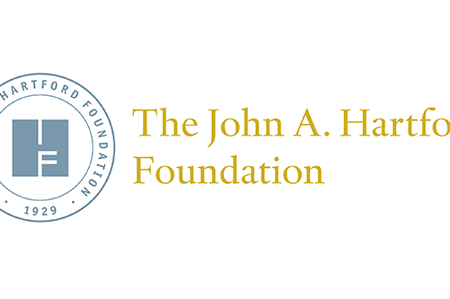Four New Grants Totaling Nearly $9 Million Approved by JAHF Board of Trustees at March 2019 Meeting

The John A. Hartford Foundation Board of Trustees has approved four grants totaling nearly $9 million for projects that will lead to improved health for older adults by expanding access to palliative care, helping community-based organizations partner with health systems and plans, spreading age-friendly care through leadership development and a learning network of hospitals, and continuing to reframe society’s views on aging.
University of Washington: Building Public Engagement and Access to Palliative & End-of-Life Care for Persons Living with Serious Illness ($3,447,029 for three years)
This grant aims to increase the availability of and public demand for high-quality palliative care and advance care planning through the development of public messaging resources and by fostering collaboration and the scaling of innovative programs that improve serious illness and end-of-life care. Seven leading national organizations, which began working together under a prior grant, will develop and implement the messaging in partnership with other key stakeholders. They will also expand the reach of their programs, which range from clinician training in serious illness care to helping individuals and communities engage in planning for the end of life.
The National Association of Area Agencies on Aging: Aging and Disability Business Institute, Phase 2 - Advancing Integration, Partnerships and Payment Models Between Social Services and Health Systems ($2,973,335 for three years)
This grant will continue support for the National Association of Area Agencies on Aging and its Aging and Disability Business Institute, which builds the skills of community-based social service organizations to more effectively partner with health systems and plans to improve the health and well-being of older adults. This next phase will address emerging issues related to the business challenges facing community-based organizations, advance solutions that reduce barriers to system integration such as contracting processes, explore ways to participate in the Age-Friendly Health Systems movement and seek new revenue sources to sustain the Business Institute.
The American Hospital Association, Health Research & Education Trust (HRET):
Age-Friendly Health Systems Leaders Group -
1) Developing Age-Friendly Health Systems Leadership
2) Transforming HRET’s Hospital Network to Become More Age-Friendly
($1,957,990 total for three years)
This project aims to improve the care of older adults by developing Age-Friendly Health Systems leaders and hospitals. The American Hospital Association’s (AHA) Health Research & Education Trust will support 30 leaders over three years in an Age-Friendly Health Systems track within AHA’s leadership development program and provide Age-Friendly Health Systems content to participants across all tracks. The grant will also leverage the organization’s existing network of 1,638 hospitals to run an Age-Friendly Health Systems “action community” with the Institute for Healthcare Improvement. Hospitals participating in the nine-month action community will receive coaching to implement evidence-based practices based on the essential elements of Age-Friendly Health Systems—what Matters, Medication, Mentation and Mobility.
Gerontological Society of America: Sustaining the Reframing Aging Initiative ($600,000 for three years)
This grant to the Gerontological Society of America (GSA) will continue support of the Reframing Aging initiative, which works to counter the pervasive negative beliefs about aging that are barriers to improving the care of older adults in the United States. In prior phases, eight national aging organizations (including GSA) partnered with the non-profit FrameWorks Institute to conduct rigorous research and develop tools to change the public’s understanding of aging. After successfully demonstrating the tools’ effectiveness and creating a cohort of Master Trainers and online educational videos, the initiative is poised for continued dissemination by building an infrastructure, providing more training and technical assistance and offering membership to local, regional and state organizations.
